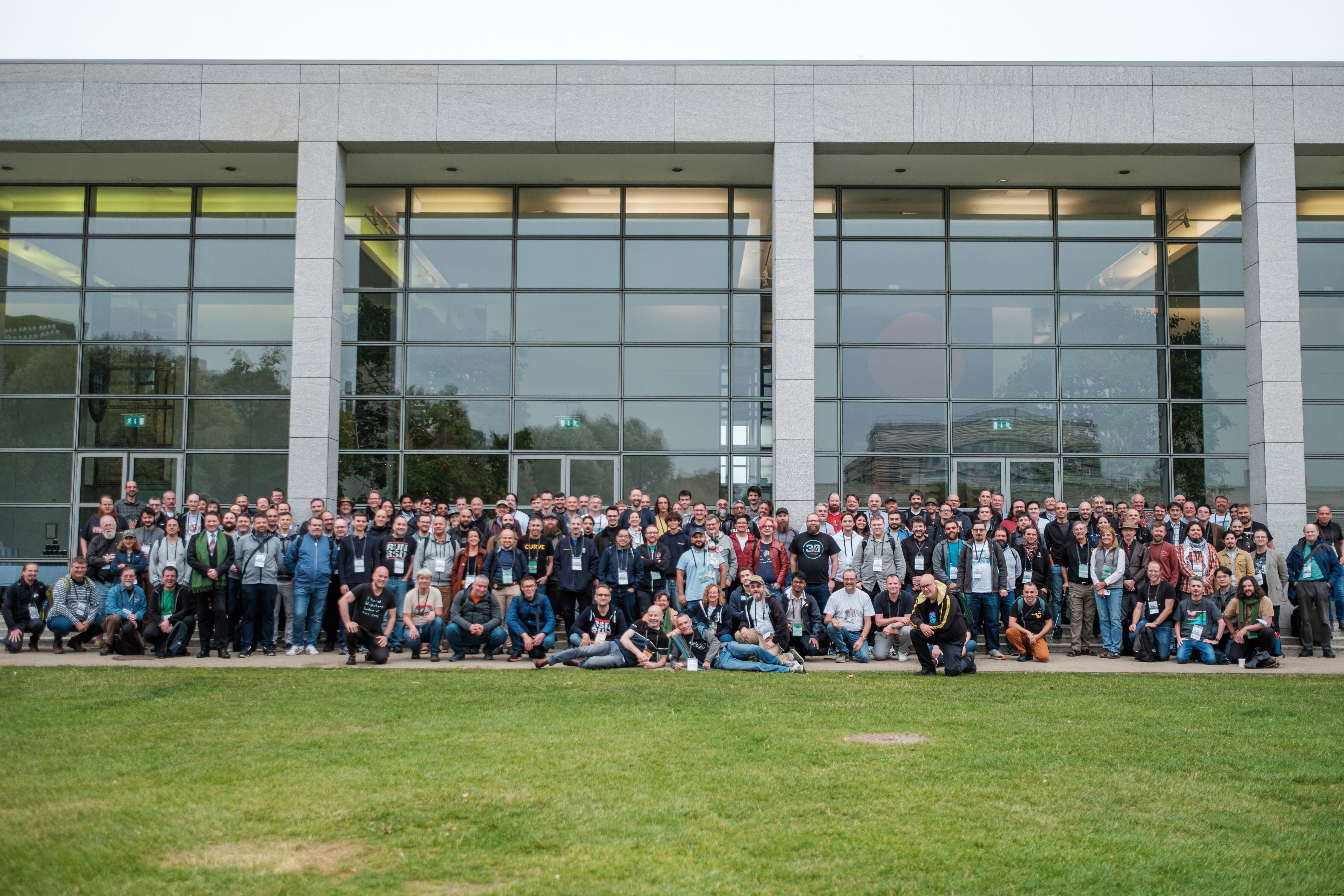The FreeBSD Foundation kindly offered to sponsor my trip to Dublin, Ireland, for EuroBSDCon 2024. As usual, the conference spanned four days — the first two were for the tutorial sessions, as well as the FreeBSD developer summit, and the last two for the talk sessions. The venue was at University College Dublin, right by the lake, in a quiet and green part of Dublin.
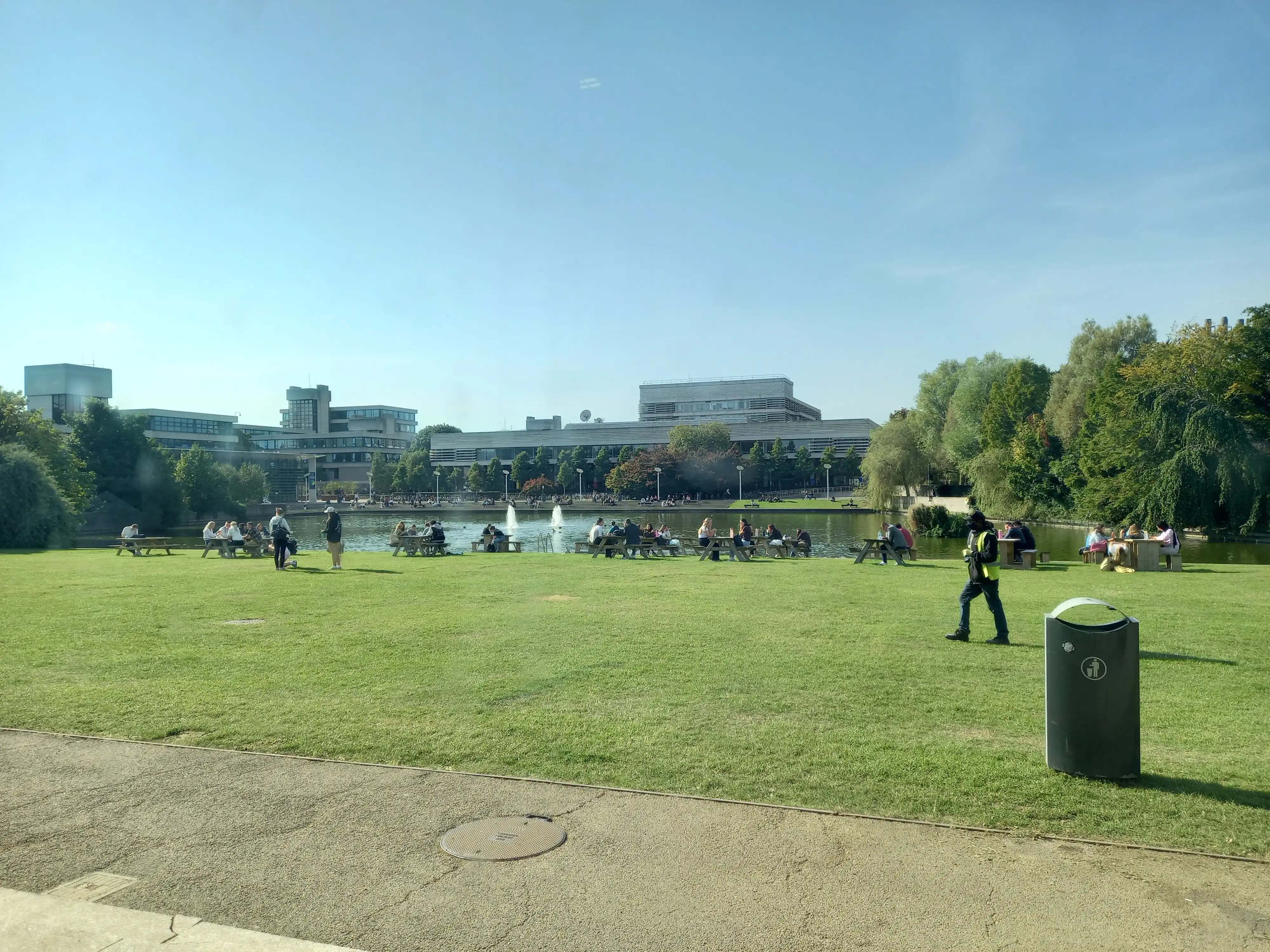
I arrived in Dublin one day before the conference, on the 18th of September, but since it was already evening, I only had time to meet with Bojan Novković (bnovkov@), with whom I shared an apartment, and Mark Johnston (markj@), and go for a beer. My only remark about this day is that Guinness in Ireland does indeed taste better.
The first day of the developer summit involved meeting, catching up and working with other developers, as well as working on my own projects. The Foundation opened with an update on the latest developments and projects it has been funding. Alfonso Siciliano (asiciliano@) gave an interesting talk on vision accessibility, where he highlighted some of the problems people with vision problems (e.g color blindness, low vision, or even complete blindness) face, and provided a roadmap for how we can start addressing these issues. One of the parts that caught my attention was the use of speech synthesis, something that is already somewhat possible on FreeBSD. Another talk I enjoyed was on CheriBSD, which seems to be addressing many of the memory-safety issues present in C code. Once the developer summit was over for the day, I grouped up with Mateusz Piotrowski (0mp@) and Olivier Certner (olce@), and headed to Dublin City center for dinner.
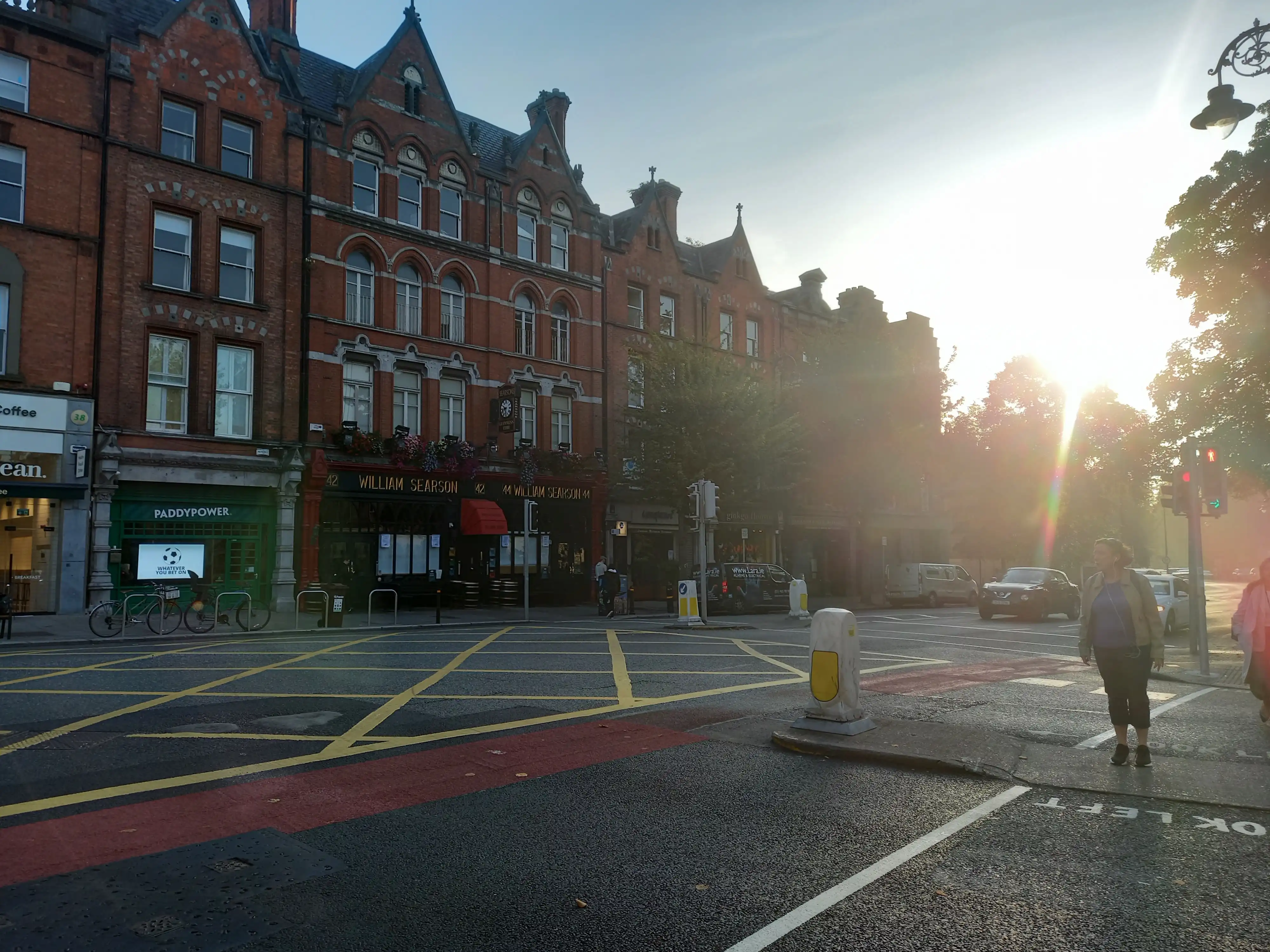
Day two of the developer summit started with a brief introduction from the Core.13 team, followed by a talk on Release Engineering by Colin Percival. Then followed a couple of lightning talks, including my talk [slides, video] on the current Foundation-sposored project I am working on, to improve the audio stack. Benedict Reuschling (bcr@) presented an interesting jail-based system he devised to train his university students on problem solving. Once the lightning talks were over, there was a “long conversations” session, where two speakers would go on stage, chat about any topic for 10 minutes, and then be swapped out for another speaker. The last hours of the developer summit were spent on bug triaging; Mark Johnston initially presented his approach to bug triaging, and then opened a discussion with the audience on the most recent bug reports. The day ended with a few cold beers with other developers, at a busy Irish pub which has been open since the 1700s.
Over the following two days, EuroBSDCon proper took place. Some talks that really piqued my interest included:
- Mateusz Piotrowski’s talk on rc(8) scripts on FreeBSD, which received very positive feedback from the audience. Mateusz did a great job going through the service script framework, the various scripts involved, as well as explaining how to write an rc(8) script. What I got from this talk was primarily that the rc(8) framework is quite more sophisticated than I had initially thought.
- Taylor R. Campbell’s talk on RAM bit flipping errors. I have to admit I never really thought about memory bits being flipped by cosmic rays, but Taylor managed to present the topic in very interesting way; he even encountered and recorded such an error in the real world. After explaining the different types of memory errors, he spent the second half of the talk going through various ways of troubleshooting these errors using software. He also showcased in a live example, a NetBSD kernel module he wrote to detect bit flipping errors.
- Dave Hibberd’s talk on packet radio. I have never dabbled with packet radio specifically, however I do own and use a VHF/UHF radio, so it was interesting to see how Dave managed to set up his own packet radio network using open source software. We first met with Dave the day before the talk, so we had already spent some time chatting about radios.
- Walter Belgers’ talk on the 80s and 90s hacking scene, primarily the Dutch one, which he was a part of. The talk went through the techniques with which hackers at the time were using the lack of security to their advantage, in order to break into machines and websites, which sometimes even got them into serious trouble with the authorities. I particularly enjoyed Walter’s presenting style and the abundance of photo archives he included in the slides.
- John Baldwin’s talk on FreeBSD bus driver resource management. This was one of the last talks of the conference, and at this point my energy had started to wear off, so I had to struggle to take in all the information John presented, but I think he did a great job at a explaining a rather complex topic.
On day three was also the customary social event, where we meet after the conference, usually at a venue or restaurant, and eat, drink and have fun.
Jason Tubnor from the “BSD Now” podcast invited me for a short interview (starts at 00:44:12) for the podcast, where I briefly talked about my recent audio work.
On the day of departure Ryanair decided to delay my first flight for 2 hours, which meant I would miss my connecting flight as well. Luckily I managed to book another flight for free, but I had to stay one more day in Ireland. To spare myself from having to spend a whole day at the airport, I took the first bus to Galway — a nice, touristy city on the west coast of Ireland, around 3 hours from Dublin.
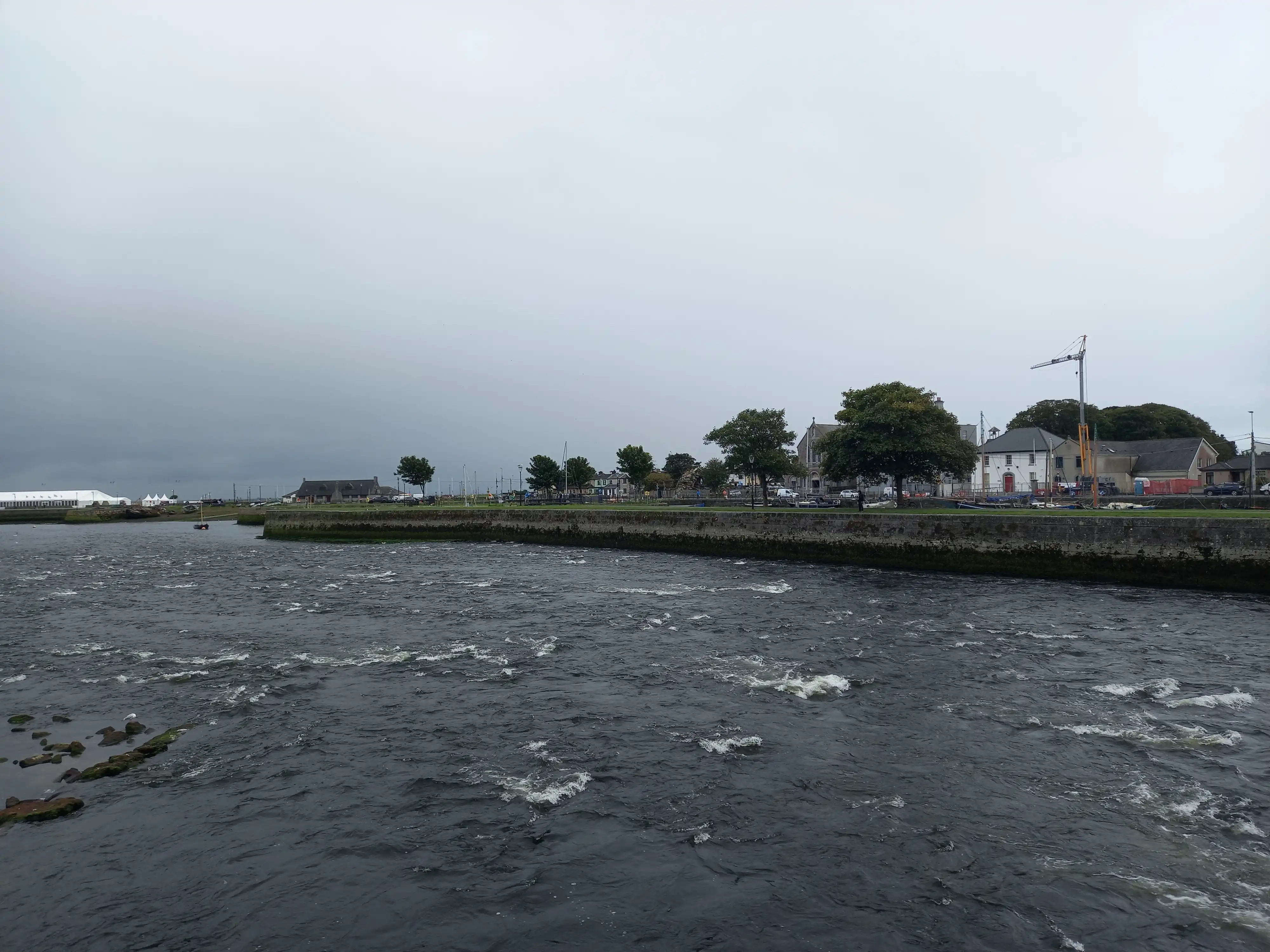
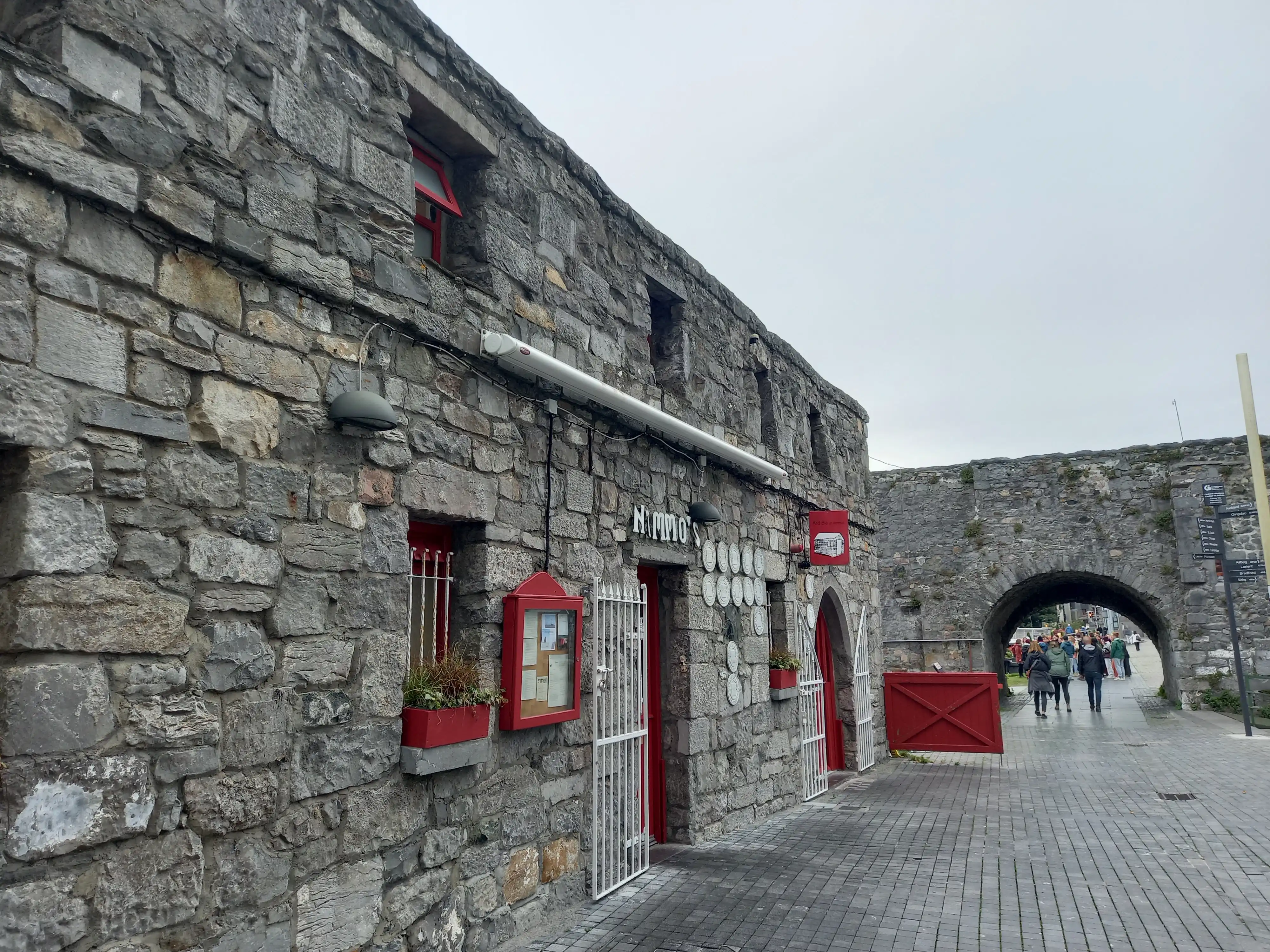
In the evening I arrived back to Dublin, headed to the airport, got some “sleep” and arrived home the next morning.
I would like to thank the FreeBSD Foundation for sponsoring my trip, as well as the Irish people for their incredible hospitality. I had a great time, met with lots of new interesting people, and discussed/learned many important things. Conferences are always a great way to stay motivated and remind oneself of the importance of in-person interaction, something that many developers tend to miss, unfortuantely. It was also great to learn that Bojan will be organizing EuroBSDCon 2025 in Zagreb, Croatia, which I am really looking forward to.
